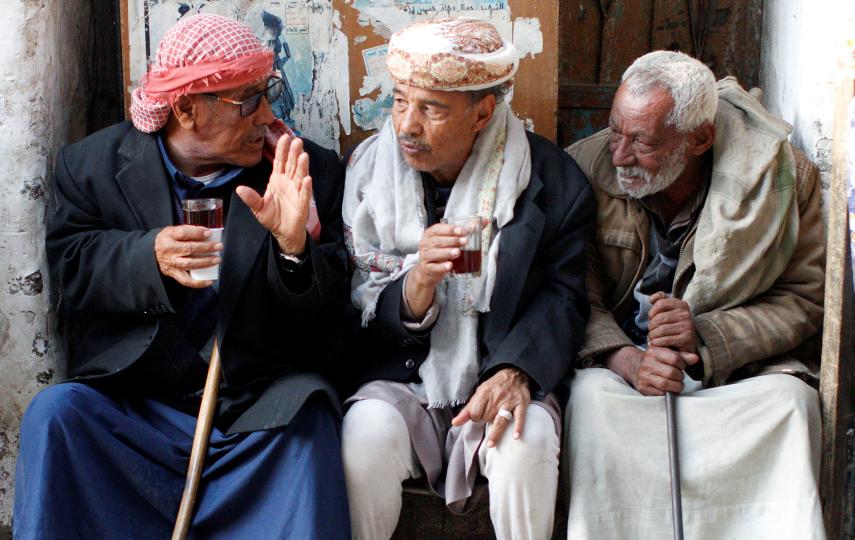Negotiators at the UN climate talks were making bets on when the conference would end as another cold wet day began in Warsaw. Opinion weighed heavily in favour of late on Friday night or in the early morning on Saturday, but this could change.
"Loss and damage talks are now taken up by ministers," said Sönke Kreft, team leader of International Climate Policy at the NGO, Germanwatch. "Together with decisions on the roadmap for a new agreement in 2015 and concrete steps in climate finance, these could lay the foundation for an acceptable Warsaw outcome."
Three sticking points need to be smoothed:
Loss and damage
Progress has been made on this issue and the countries are agreed on the need for a mechanism. This need had already been decided at the last round of talks in Doha, but more time was spent on it in Warsaw.
Where the mechanism should reside is the question. There are three options: place it under the Conference of the Parties (COP) to the UN Framework Convention on Climate Change (UNFCCC); under UNFCCC's Subsidiary Body for Scientific and Technological Advice (SBSTA); or under Adaptation.
The developing countries see the issue of "loss and damage" as a separate pillar directly under the UNFCCC, with Adaptation and Mitigation being the other two pillars. Many of these countries are already experiencing impacts of extreme weather that are beyond adaptation; and feel that this issue requires special attention because the climate is also changing more rapidly than before.
However, at a press briefing on Wednesday the US envoy for climate change, Todd Stern, told IRIN in response to a question that all the developed countries felt the issue of loss and damage should be addressed under the Adaptation pillar. This is because the help required - such as disaster risk reduction efforts, insurance and technical support - was similar to that needed for adaptation. "It is very hard to separate loss and damage from adaptation - we are not trying to create a third pillar of climate change," he said at another press briefing on Friday.
One negotiator told IRIN that the developing countries were rigid on their position, and that "loss and damage" would only be "acceptable as a separate pillar, as any other compromise would weaken its impact". Climate Action International (CAN), a coalition of almost all the environmental NGOs, said they support the issue being established as a third pillar.
Finance
Developing countries have been asking the rich countries to fulfil their financial commitment. There has been progress on short-term finance, the head of Poland's delegation, Beata Jaczewska, reported at a press briefing. The Adaptation Fund, which was looking for US$100 million urgently, has managed to raise the money with pledges from Germany, Switzerland, Belgium, Austria, Finland and Norway. Poland has been unable to contribute as it funded the current climate change conference, Jaczewska said.
Rich countries at the UN climate conference in Copenhagen in 2009 had pledged to provide $100 billion a year from 2020 onwards. In Warsaw, the poor countries have been asking for projections of how that money will be provided to help them plan their adaptation and mitigation policies.
This issue is still unresolved. José Romero, the Scientific Advisor to the Swiss Federal Department of Transport, Communication, and Energy, who was involved in setting up the various funds under the UNFCCC, said the rich countries must step up their efforts.
"There is a lot of mistrust - we need a clear commitment from the rich countries in the text," a negotiator said.
The long-term plan
At the climate conference in Durban in 2011, the Ad Hoc Working Group on the Durban Platform for Enhanced Action (ADP) was set up to develop a legal instrument on how to limit greenhouse gas emissions beyond 2020. Work on the proposed treaty is to be completed no later than 2015 for it to be adopted at COP 21 in Paris in 2015.
At the beginning of this week, South Africa's negotiator, Alf Wills, told IRIN they were expecting a roadmap with clear commitments from rich countries on targets to reduce emissions. So far, the draft texts released do not contain anything firm. One negotiator told IRIN, "I think we will finish tonight [Friday]." The hope is that the issues will be resolved before the conference ends.
jk/he
This article was produced by IRIN News while it was part of the United Nations Office for the Coordination of Humanitarian Affairs. Please send queries on copyright or liability to the UN. For more information: https://shop.un.org/rights-permissions





